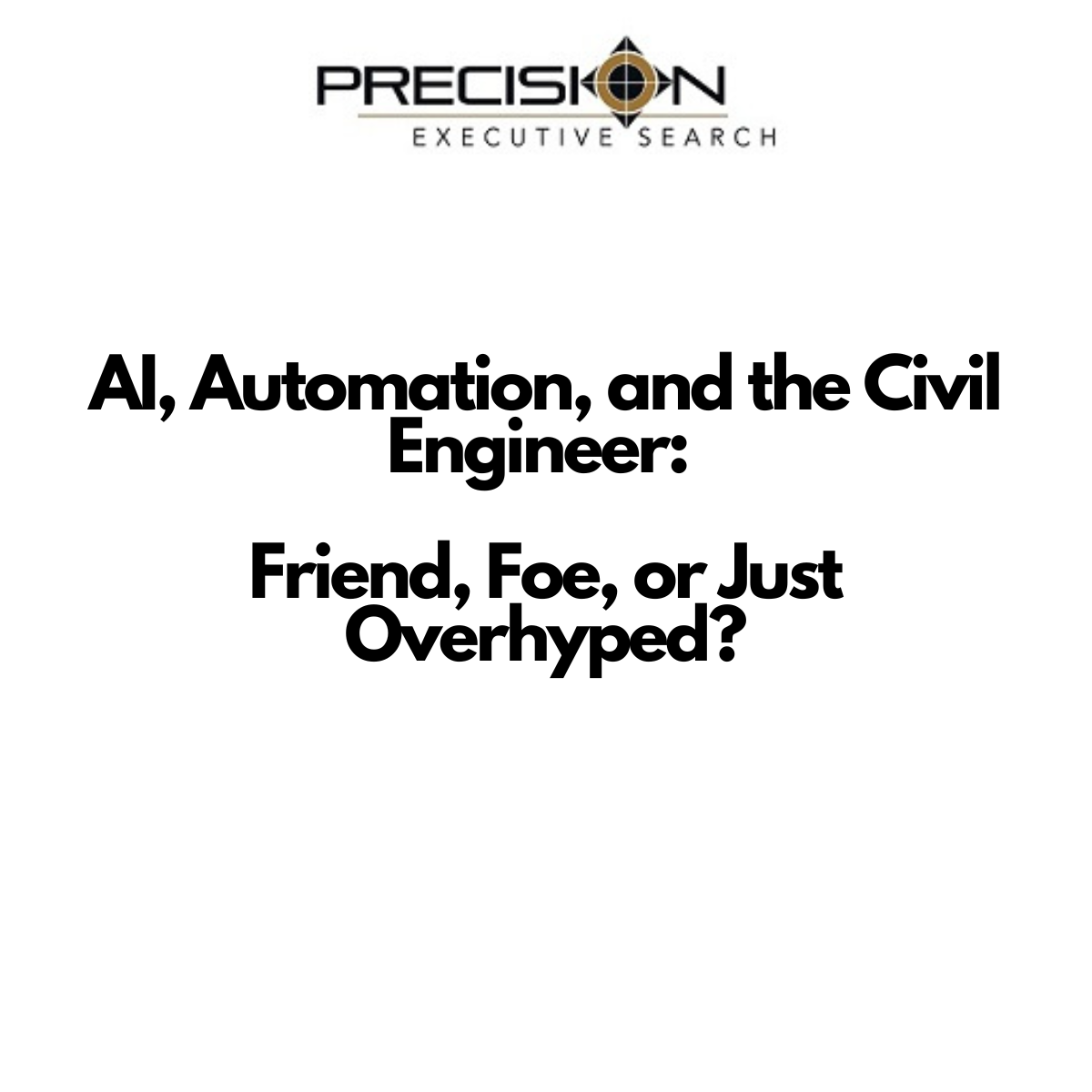
01 Aug AI, Automation, and the Civil Engineer: Friend, Foe, or Just Overhyped?
We’ve all seen the headlines. AI is coming for jobs, automation is replacing workers, and the future of work is… uncertain. But if you’re a civil engineer, the situation is far less dramatic. Sure, tools are getting smarter and workflows more digitized, but the need for human insight, judgment, and boots-on-the-ground experience isn’t going anywhere.
Where AI Is Already in Play From drone-enabled site surveys to researching standards and permitting processes to automated plan checking and machine learning in traffic modeling, automation is already streamlining repetitive and data-heavy tasks. Civil 3D, Bluebeam, and GIS platforms are getting faster and more intuitive. But these tools are not replacing engineers—they’re extending their capabilities.
What Can Be Automated—and What Can’t AI is great at pattern recognition, optimizing designs, and flagging potential issues based on data. But it can’t negotiate with stakeholders, walk a site, or make judgment calls on construction sequencing. It can’t replace the engineer-client relationship, nor can it replicate the intuition that comes from years of field experience.
What Firms Are Looking For Employers aren’t looking to replace engineers with robots. They’re looking for engineers who can use tech to solve problems more efficiently. Skills like data analysis, GIS fluency, and comfort with automation tools are increasingly valued. But so is the ability to lead, collaborate, and make decisions.
How to Stay Ahead
- Learn the tools. Don’t avoid automation—embrace it.
- Stay curious. Read up on how firms are integrating AI in design and project management.
- Focus on the value-add. What can you do with technology that improves your team’s output?
Bottom Line AI isn’t your enemy. It’s a tool, just like CAD was 20 years ago. The civil engineers who succeed in the years ahead will be those who leverage new technology without losing the very human expertise that makes the profession indispensable.


No Comments